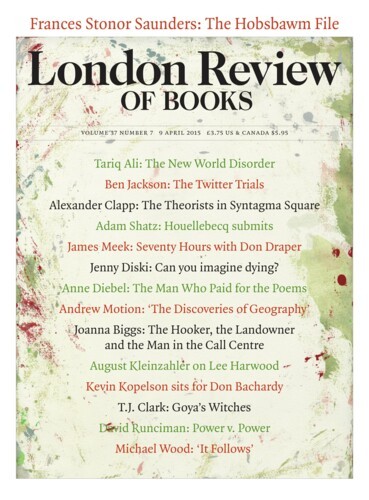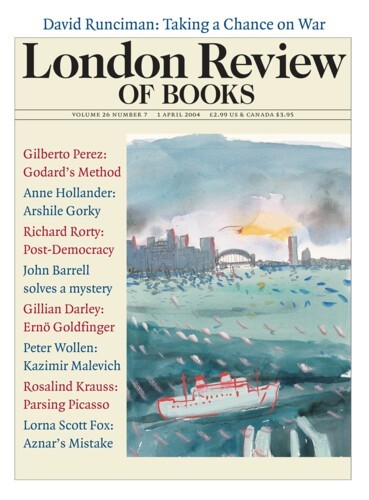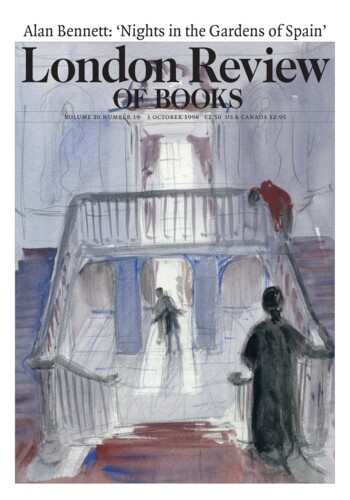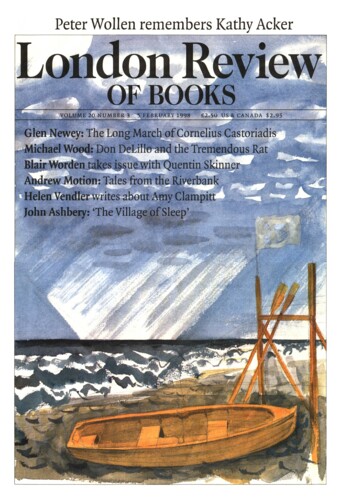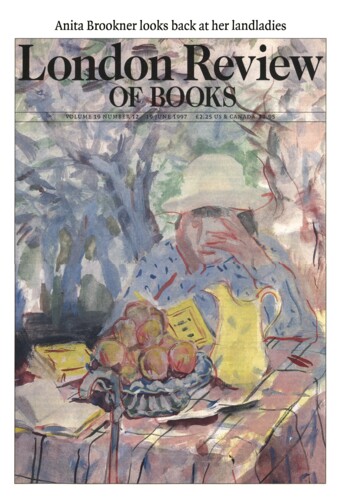Poem: ‘The Discoveries of Geography’
Andrew Motion, 9 April 2015
If only the stories were not so tempting – but from day one I started to embroider, and in no time was suggesting a country far to the North where fish are as large as dragons, and even minor administrators eat off gold plates, and sleep on gold beds.
That is why I have packed in my birch canoe a robe made of the feathers of more than 100 different species of bird.
So that when I have...
